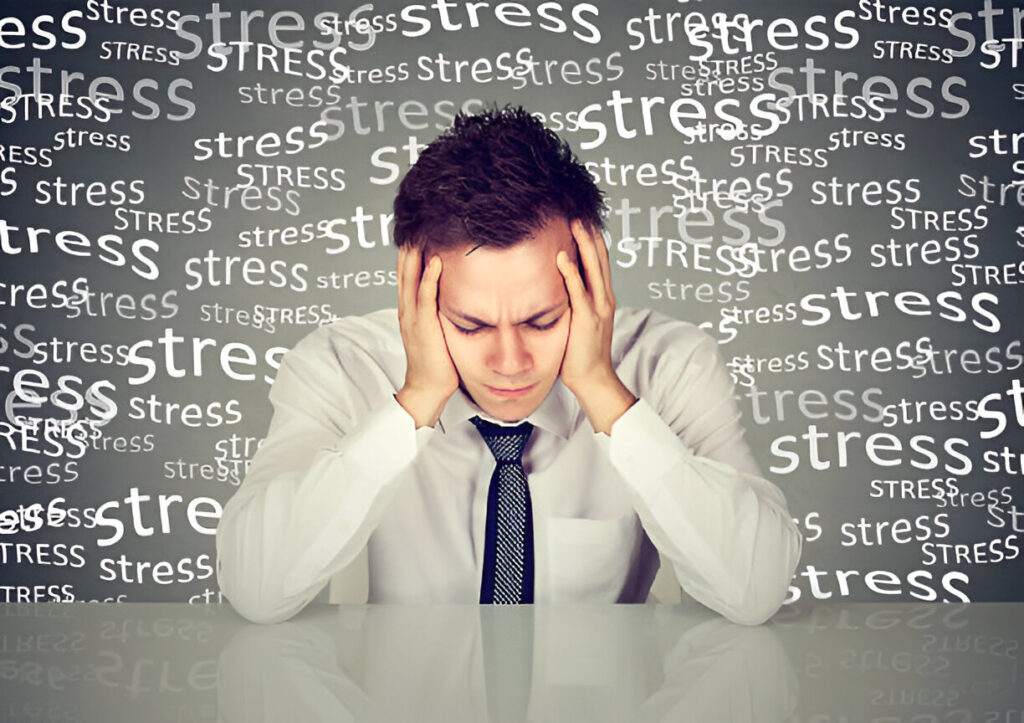Overview
Anxiety is common, and many people experience it at any point in their lives. Anxiety is defined as a state of fear, nervousness, or worry that arises in reaction to actual or imagined threats. It is a feeling that creates increased attention, tension, and bodily symptoms such as a rapid heartbeat. If a person suffers from acute anxiety, they may have a panic attack, which is characterized by an overwhelming feeling of dread or fear that peaks before decreasing. The feelings of anxiety and panic disrupt daily activities, are difficult to cope with, are out of proportion to the real danger, and may persist for a long period.
Causes:
Stressful life events
Exposure to stressful life events can lead to the onset or worsening of anxiety. These events may include mental and physical abuse, neglect, the loss of a loved one, divorce, and loneliness. Stressful life experiences cause the body to trigger the fight-or-flight response, producing cortisol and adrenaline. Furthermore, stressful situations can reinforce negative thought patterns and worsen anxiety symptoms.
Genetics and family history
Some people may be predisposed to anxiety due to genetics. People with close family members who suffer from anxiety are believed to be more genetically predisposed to having this condition. While genes are not the only factor at play, evidence indicates that they certainly play a part in making someone more likely to develop anxiety. Certain genes increase the likelihood of having anxiety, and genes can be activated or deactivated in response to environmental triggers. Anxiety can run in families, indicating a genetic link and a higher risk for close relatives. However, genetics are not the only determining factor. External factors and life events can also have a substantial impact on an individual’s anxiety.
Personality traits
Certain personality traits are more predisposed to anxiety than others. Research suggests that a lower level of neuroticism and a higher level of extraversion, openness, agreeableness, and conscientiousness might result in a higher level of general self-efficacy, and persons with higher general self-efficacy may have a reduced degree of anxiety. Anxiety is linked to both neuroticism and introversion, but it is more strongly associated with neuroticism. Individuals with high neuroticism and introversion levels are more prone to feelings of anxiety.
Testosterone levels
Testosterone is the hormone that gives people their “male” and “female” characteristics. It regulates several bodily functions, such as muscular mass, bone strength, and sex drive. But can low testosterone cause anxiety? Surprisingly, the answer is yes. Reduced levels of testosterone, particularly in men, have been linked to increased feelings of anxiety and depression. When testosterone levels are low, the balance of serotonin and dopamine can be disrupted, making you more prone to anxiety. Testosterone may increase levels of serotonin, which plays a role in improving mood and lowering anxiety. With reduced testosterone levels, this additional serotonin boost might be lacking. If your anxiety is caused by low testosterone, increasing your testosterone levels could alleviate those symptoms. Testosterone replacement treatment (TRT) can help in this case. Testosterone replacement therapy entails administering prescription testosterone through pill, implant, gel, patch, or injection.
Chronic illness and medication
Dealing with a chronic illness may cause anxiety for many people since it is unpredictable and disruptive. Chronic pain, in particular, can raise anxiety levels because the brain’s failure to manage pain may worsen both pain and anxiety. Furthermore, treating a chronic illness can be financially and emotionally demanding, causing anxiety. Additionally, certain medications, such as stimulants, trigger or contribute to anxiety. This is because stimulants increase activity in the central nervous system, resulting in a faster heart rate, higher blood pressure, and deeper breathing.
Substance abuse
Substance abuse can alter the makeup and functioning of the brain in the same ways that anxiety does. These changes can result in the onset of anxiety. Substance abuse can result in feelings of shame, embarrassment, personal troubles, and other anxiety-inducing concerns. Additionally, people suffering from anxiety may self-medicate with drugs or alcohol. However, while some drugs may temporarily alleviate some anxiety symptoms, they may eventually worsen the symptoms.
Poor sleep habits
Anxiety is usually linked to sleep disorders. Excessive worry and fear make it difficult to fall asleep and remain asleep all night. Lack of sleep may worsen anxiety, triggering an endless cycle of anxiety and sleep problems. It raises cortisol levels, which can lead to anxiety. Furthermore, researchers discovered that persons who are predisposed to anxiety are particularly vulnerable to the consequences of insufficient sleep on mood and emotional health. There is a bidirectional relationship between sleep disorders and anxiety. This indicates that sleeping problems can cause anxiety, and anxiety can, as well, lead to sleep problems.
Conclusion
Anxiety is a normal part of life. Many feel anxious about their health, financial situation, or family issues. Several factors, including a genetic predisposition, substance abuse, chronic illness, reduced testosterone levels, and stressful life events, among others, can cause anxiety. For men with testosterone levels below normal, testosterone replacement therapy (TRT) has been recommended to restore hormone levels to a healthy range.


